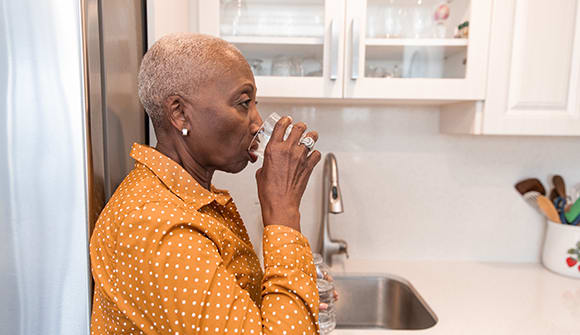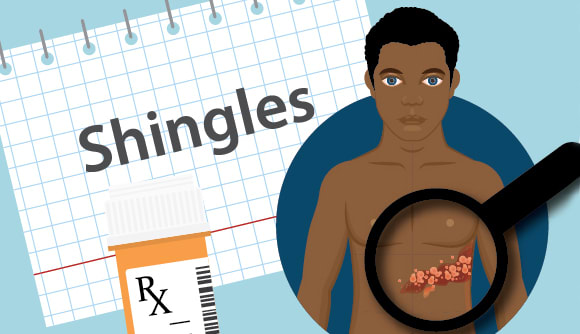Hard to swallow
Why aging can make eating difficult.
Article Date:

Some people believe food is one of life's true pleasures. However, as you age, eating can become a challenge, leading to poor nutrition and hydration. Unfortunately, this could result in serious health issues, including:
- Confusion
- Dehydration
- Depression
- Fatigue
- Frailty
- Urinary tract infections
- Loss of muscle mass and strength
- Malnutrition
- Skin breakdown
- Death
"There are so many things that may lead to poor nutrition and hydration in the elderly," said Kayla Jones, a speech-language pathologist with Baptist Rehabilitation. "Often, the reason is multifactorial, and the treatment or intervention will vary depending on the cause(s)."
Common causes of poor eating habits
Some of the most frequent causes of feeding difficulties in older adults are:
- Natural aging. Less physical activity may lead to a lack of appetite, or a diminishing sense of taste and smell could make food less tasty. In addition, "There are changes that happen to the swallowing mechanism of otherwise healthy older adults, called presbyphagia," said Jones. "While this is normal, it does put older adults at an increased risk for dysphagia, or difficulty swallowing."
- Poor oral health. "Ill-fitting dentures may cause discomfort and sores in the mouth, which could make eating painful," said Lori Watkins, a speech-language pathologist with Baptist Rehabilitation. "In addition, broken or missing teeth make chewing difficult."
- Mobility issues. Physical limitations may inhibit the ability to get or prepare food. "Sometimes, the effort to make a meal is too difficult," said Watkins.
- Social determinants. Elder adults may have limited income for healthier foods or no transportation to the grocery store.
- Medicines. Some medications for common ailments in older adults, such as those for blood pressure or pain management, could suppress appetite or cause nausea and vomiting.
- Cognitive decline. People experiencing dementia may not want to eat or drink or may forget to do so if they're without support. For people with dementia, dehydration and related complications are among the top reasons for hospitalization.
- Loneliness. Watkins said, "Most people prefer to share a meal with a loved one or friend." If they don't have anyone available, they may choose not to eat.
What to watch for
Jones and Watkins said there are several symptoms that family, friends and caretakers should look for in their at-risk relatives or friends that may indicate problems with eating:
- Complaints of pain or difficulty swallowing
- Coughing, "gurgly voice" or frequent throat clearing during meals
- Decreased intake of food/liquid or refusal to eat
- Frequent belching or vomiting after meals
- Isolation, especially around meals (they may feel embarrassed to eat in front of others)
- Spitting out food
- Unexplained weight loss
Help is available
If medical issues are the underlying problem, Jones recommended talking to your primary care physician, who may recommend an assessment by a speech-language pathologist.
"While the cause may be complicated, sometimes a small change or modification can make a big difference," she said.
In addition, you can reach out to your place of worship, workplace or friends for references to other helpful resources.
Are you or a loved one having difficulty eating?
Contact your primary care physician for help. Baptist Rehabilitation offers a variety of therapies with experts dedicated to providing care that alleviates pain, restores function, promotes safety and improves your overall health. Call 904.202.4200 to learn more or make an appointment.


